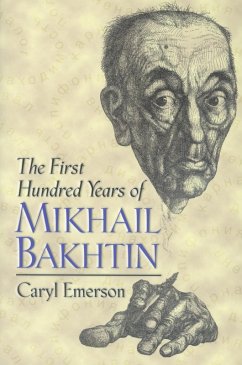Among Western critics, Mikhail Bakhtin (1895-1975) needs no introduction. His name has been invoked in literary and cultural studies across the ideological spectrum, from old-fashioned humanist to structuralist to postmodernist. In this candid assessment of his place in Russian and Western thought, Caryl Emerson brings to light what might be unfamiliar to the non-Russian reader: Bakhtin's foundational ideas, forged in the early revolutionary years, yet hardly altered in his lifetime. With the collapse of the Soviet system, a truer sense of Bakhtin's contribution may now be judged in the context of its origins and its contemporary Russian "reclamation."
A foremost Bakhtin authority, Caryl Emerson mines extensive Russian sources to explore Bakhtin's reception in Russia, from his earliest publication in 1929 until his death, and his posthumous rediscovery. After a reception-history of Bakhtin's published work, she examines the role of his ideas in the post-Stalinist revival of the Russian literary profession, concentrating on the most provocative rethinkings of three major concepts in his world: dialogue and polyphony; carnival; and "outsideness," a position Bakhtin considered essential to both ethics and aesthetics. Finally, she speculates on the future of Bakhtin's method, which was much more than a tool of criticism: it will "tell you how to teach, write, live, talk, think."
A foremost Bakhtin authority, Caryl Emerson mines extensive Russian sources to explore Bakhtin's reception in Russia, from his earliest publication in 1929 until his death, and his posthumous rediscovery. After a reception-history of Bakhtin's published work, she examines the role of his ideas in the post-Stalinist revival of the Russian literary profession, concentrating on the most provocative rethinkings of three major concepts in his world: dialogue and polyphony; carnival; and "outsideness," a position Bakhtin considered essential to both ethics and aesthetics. Finally, she speculates on the future of Bakhtin's method, which was much more than a tool of criticism: it will "tell you how to teach, write, live, talk, think."
Dieser Download kann aus rechtlichen Gründen nur mit Rechnungsadresse in A, D ausgeliefert werden.

